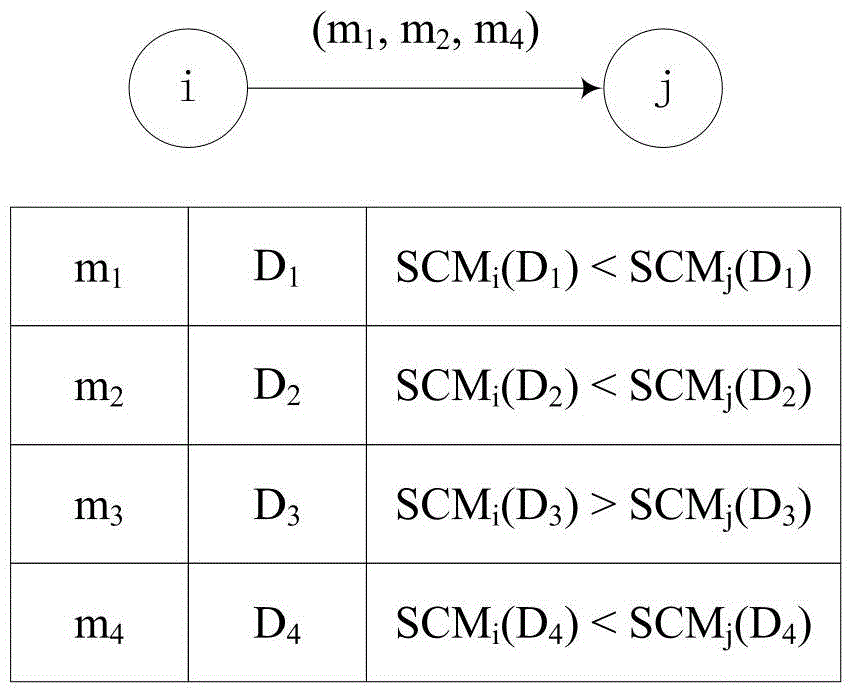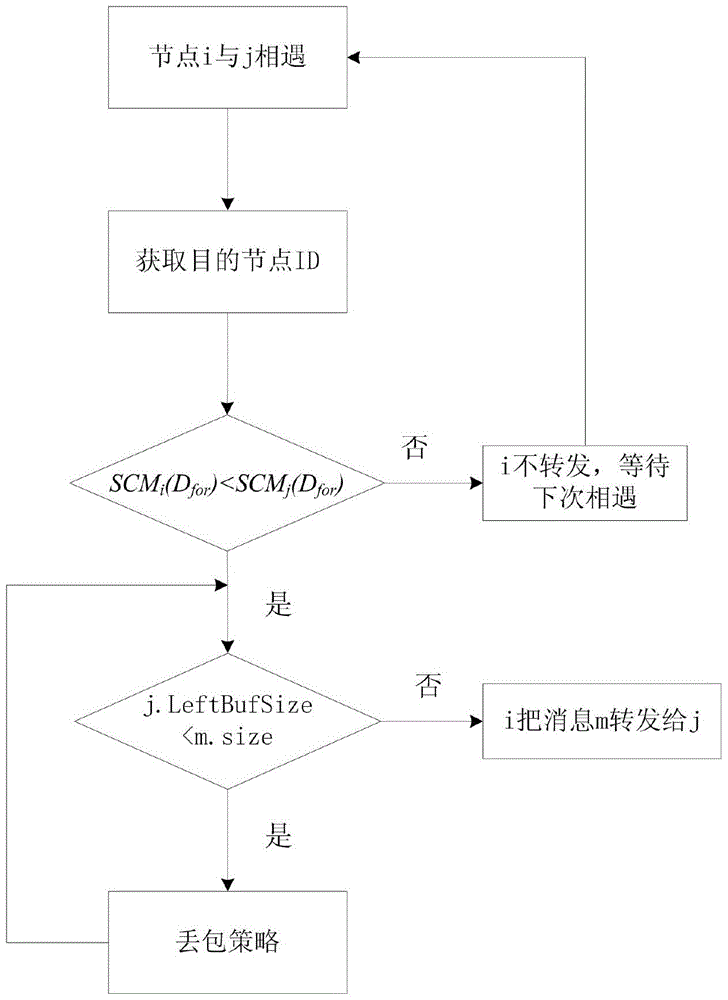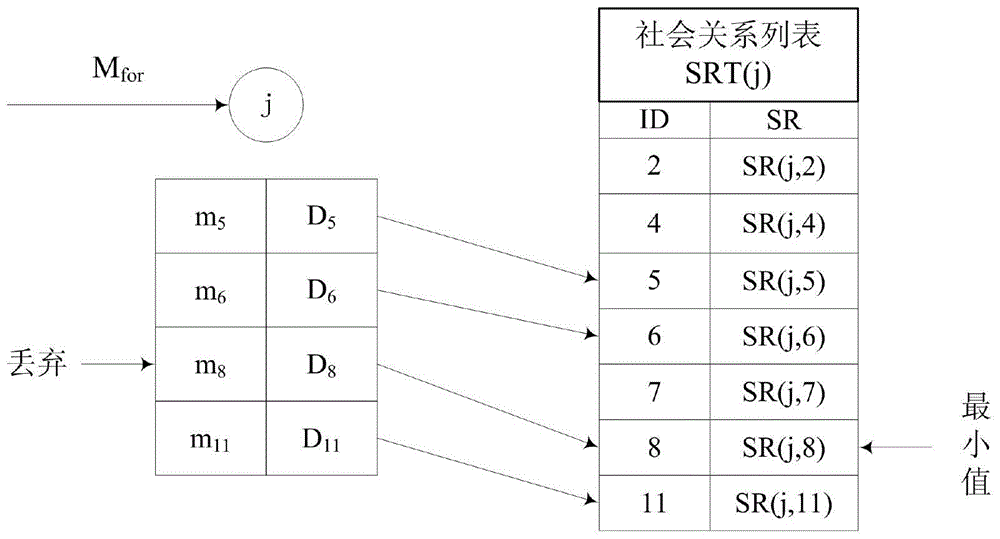A Congestion Control Method Based on Social Awareness in Delay Tolerant Networks
A congestion control and delay-tolerant network technology, applied in data exchange networks, digital transmission systems, electrical components, etc., can solve the problem of message destination node reception, high probability of successful forwarding, and no consideration of the social relationship between the node carrying the message and the destination node, etc. question
- Summary
- Abstract
- Description
- Claims
- Application Information
AI Technical Summary
Problems solved by technology
Method used
Image
Examples
Embodiment Construction
[0068] by figure 1 Take an example to illustrate the process of message forwarding when nodes i and j meet. There are m in the message queue carried by node i 1 ,m 2 ,m 3 ,m 4 Four data packets, the corresponding destination nodes are D 1 ,D 2 ,D 3 ,D 4 . First, nodes i and j respectively calculate the relationship with the first destination node D 1 The social congestion measure of , denoted as SCM i (D 1 ) and SCM j (D 1 ), compare the size of the two to get the SCM i (D 1 )j (D 1 ), node j and message m 1 Destination node D 1 The social congestion metric value of node i is greater than that of node i, indicating that node j for message m 1 The forwarding ability of node i is stronger than that of node i, so the m 1 Join the sending queue. to m 2 ,m 3 ,m 4 Perform the same operation, since node j and destination node D 3 The social congestion measure of node i is smaller than that of node i, that is, the SCM i (D 3 )>SCM j (D 3 ), so m 3 Not in s...
PUM
 Login to View More
Login to View More Abstract
Description
Claims
Application Information
 Login to View More
Login to View More - Generate Ideas
- Intellectual Property
- Life Sciences
- Materials
- Tech Scout
- Unparalleled Data Quality
- Higher Quality Content
- 60% Fewer Hallucinations
Browse by: Latest US Patents, China's latest patents, Technical Efficacy Thesaurus, Application Domain, Technology Topic, Popular Technical Reports.
© 2025 PatSnap. All rights reserved.Legal|Privacy policy|Modern Slavery Act Transparency Statement|Sitemap|About US| Contact US: help@patsnap.com



